Syria updates: US charges ex-head of Syrian prison as US man found wandering barefoot
The former head of a notorious Syrian prison has been charged as a detained US ‘pilgrim’ was found alive. Follow updates.
World
Don't miss out on the headlines from World. Followed categories will be added to My News.
The former head of a notorious Syrian prison has been charged in the United States with torturing opponents of the now-collapsed regime of Bashar al-Assad, the Justice Department said.
Samir Ousman Alsheikh, 72, who has been in the US since 2020, allegedly ran Damascus Central Prison - known colloquially as Adra Prison - from around 2005 to 2008 and is accused of personally torturing detainees.
It comes as an American man believed to have been set free from a Syrian prison was found alive wandering the country barefoot.
Travis Timmerman was detained in May after illegally crossing over the Syrian border from the eastern Lebanon city of Zahle while on a religious “pilgrimage”.
Mr Timmerman, 29, told NBC News that he heard people being tortured, but that he was not personally mistreated.
“It was okay. I was fed. I was watered. The one difficulty was that I couldn’t go to the bathroom when I wanted to,” he added. “I was not beaten and the guards treated me decently.”
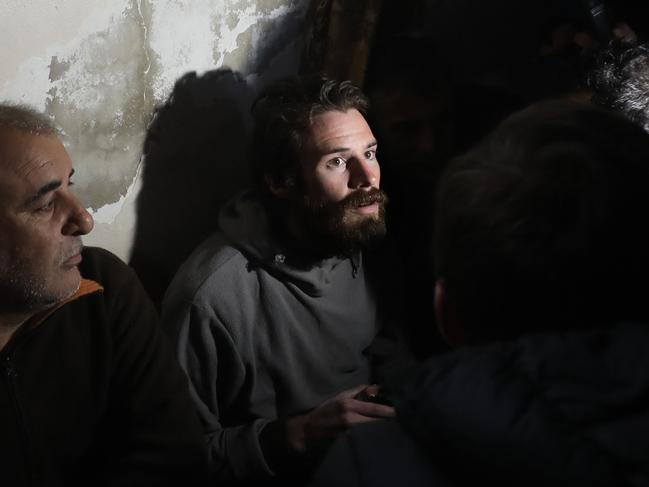
Mr Timmerman said he had spent days since his release sleeping in an abandoned house and wandering the street barefoot asking for water.
Before his arrest, Mr Timmerman said he spent a month in Lebanon reading “reading the scripture a lot” before deciding to cross by foot into the mountains without food or water, where he was spotted by border guards and detained.
He was reported missing by the US state of Missouri and Hungry, where he had disappeared on May 28.
Imprisonment was “actually good” for Mr Timmerman, he told NBC, calling it “a time of solace, of meditation and I’m stronger for it.”
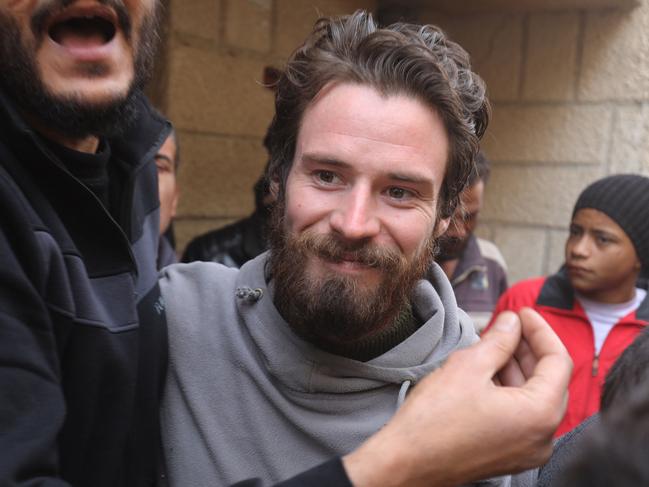
FOLLOW UPDATES BELOW:
ASSAD FATHER’S COFFIN SET ALIGHT
The coffin of ousted President Bashar al-Assad’s father Hafez has been set on fire in his hometown of Qardaha, as rebel fighters in fatigues watched on.
The Syrian Observatory for Human Rights war monitor told media the rebels had torched the mausoleum, located in the Latakia heartland of Assad’s Alawite community.
Footage showed parts of the mausoleum ablaze and damaged, with the tomb of Hafez burnt and destroyed.
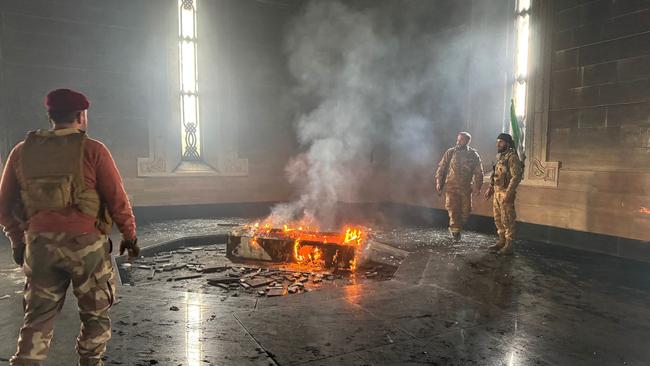
The vast elevated structure atop a hill has an intricate architectural design with several arches, its exterior embellished with ornamentation etched in stone.
It also houses the tombs of other Assad family members, including Bashar’s brother Bassel, who was being groomed to inherit power before he was killed in a road accident in 1994.
On Sunday, a lightning offensive by Islamist-led rebels seized key cities before reaching Damascus and forcing Assad to flee, ending more than 50 years of his family’s rule.
SOLDIER WHO FED PRISONERS TO LION ‘EXECUTED’
A member of Syria’s infamous Tiger Forces who reportedly fed ousted President Bashar al-Assad’s prisoners to his pet lion has been publicly executed by local rebels, according to reports.
Talal Dakkak, a feared member of the Syrian Army’s elite 25th Division – also known as the Tiger Forces – has been killed by local militia in the western city of Hama, according to media.
Videos posted to X claimed to show preparations being made for Dakkak’s execution, although his death has not been officially verified.

The brutal soldier, also known as Abu Sakhr, was one of Syria’s most notorious army leaders in Hama who led a 1500-strong militia of the Air Force Intelligence.
He allegedly stole a lion cub from a zoo and feeding it with the bodies of Syrian prisoners, according to a 2019 report in The Syrian Observer.
Dakkak also reportedly filmed the lion killing a live horse before posting the footage on social media.
He is responsible for several other horrific criminal acts, including kidnapping, killing and organ trade the article adds. Dakkak was also reportedly involved in smuggling and selling unregistered vehicles and drugs.

The former taxi driver is thought to be one of a number of senior army members to have been captured by the rebels after the fall of al-Assad’s longstanding regime.
It is believed that Dakkak was captured by militant rebels as they freed Syria from Assad’s oppressive regime.
The rebel leader Abu Mohammed al-Jolani, now using his real name Ahmed al-Sharaa, vowed that they would “not hesitate to hold accountable the criminals, murderers, security and army officers involved in torturing the Syrian people”.
At the core of the system of rule that al-Assad inherited from his father Hafez was a brutal complex of prisons and detention centres.
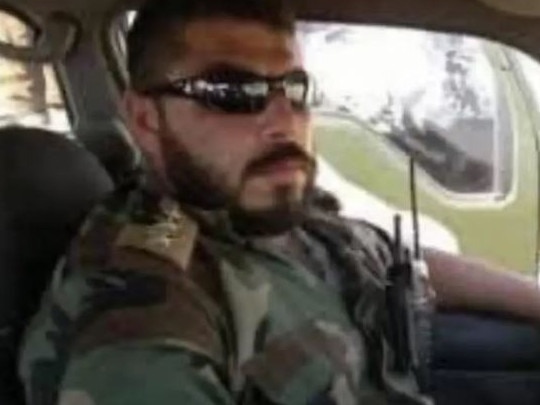
One of the biggest rebel operations after overthrowing Assad saw them liberate the harrowing Sednaya Military Prison in the neighbouring city – nicknamed the Human Slaughterhouse.
Sednaya Prison had become synonymous with Assad’s reign of tyranny over the past couple of decades.
Chilling videos from inside the liberated jail show rebels looking around a room which appears to be where executions may have taken place.
Footage from the Syrian capital shows dozens of women and young men reportedly walking free for the first time in years after rebels stormed the national prisons on the weekend.
A clip even shows a toddler leaving a cell as rebels cheered on. Survivors of the torturous prison provided chilling testimonies on their near-death experiences, claiming it was “carefully designed to humiliate, degrade, sicken, starve and ultimately kill those trapped inside”.
PHOTOS: INSIDE DESERTED PALACE
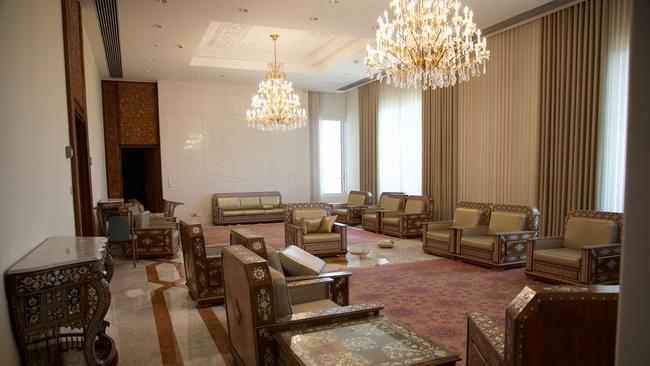
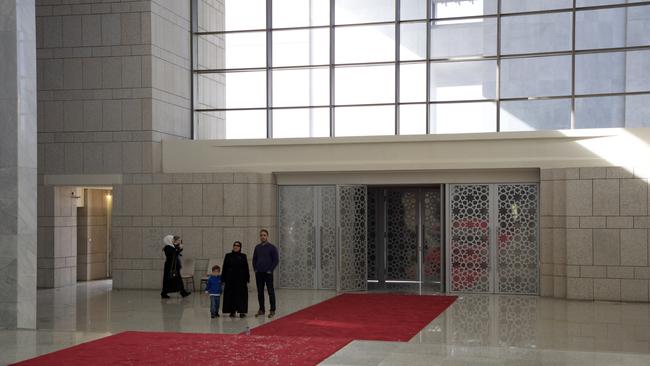
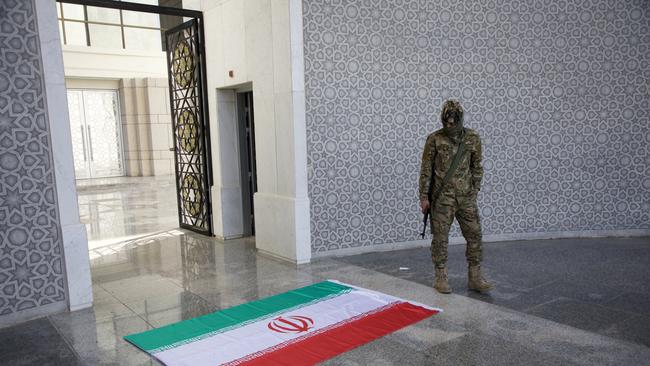
REBELS NAME SYRIA’S NEW LEADER
Meanwhile, the rebels who ousted president Bashar al-Assad and are now in power in Syria appointed a transitional head of government Tuesday to run the country.
Mohammed al-Bashir gave a statement to Syria’s state television network saying he will assume the role of interim Prime Minister.
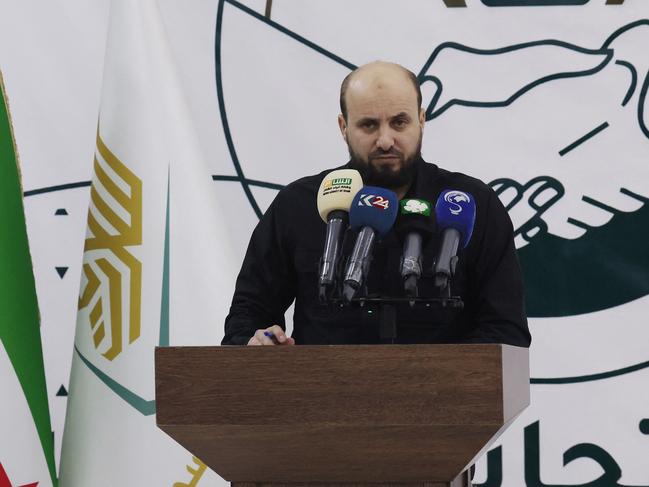
“The general command has tasked us with running the transitional government until March 1,” the statement said, referring to him as “the new Syrian prime minister”.
Bashir is an engineering graduate in his early 40s who once worked for Syria’s state gas company.
He had served as the head of the rebel administration’s self-styled “Salvation Government” since January, and previously held the role of its “development minister”.

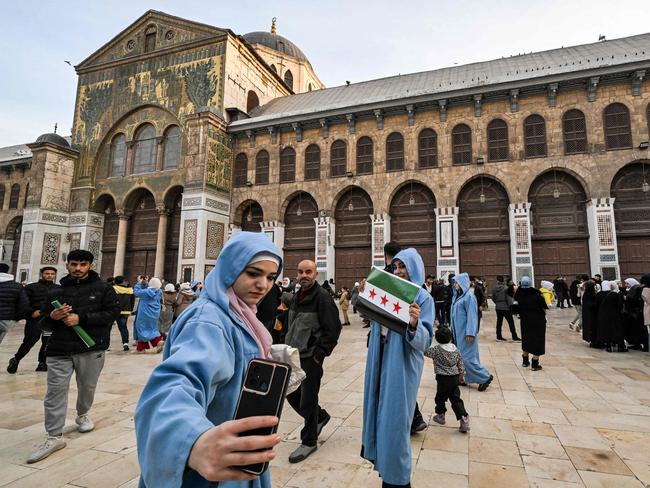
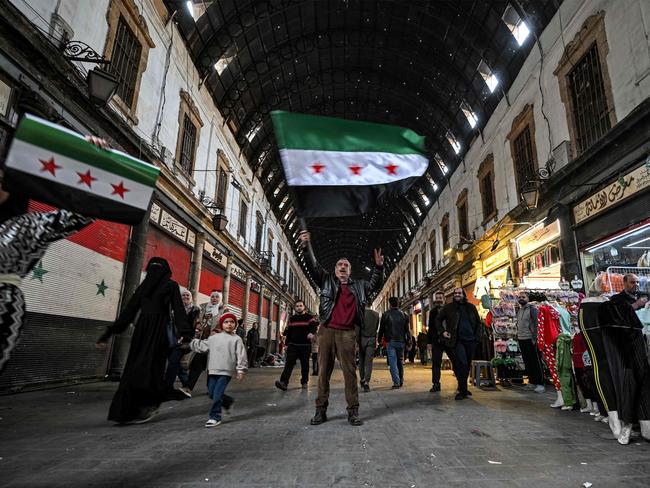
Syrians have taken to the streets to rejoice in the fall of the regime with jubilant scenes seen throughout the country.
Assad fled Syria as an Islamist-led rebel alliance swept into the capital Damascus on Sunday, ending five decades of brutal rule by his clan.
Abu Mohammed al-Jolani, the Islamist leader who headed the offensive that forced Assad out, had announced talks on a transfer of power and vowed to pursue former senior officials responsible for torture and war crimes.
His group, Hayat Tahrir al-Sham, is rooted in Syria’s al-Qaeda branch and is proscribed by many Western governments as a terrorist organisation, though it has sought to moderate its rhetoric.
The UN envoy for Syria said the groups that forced Assad to flee must transform their “good messages” into actions on the ground.
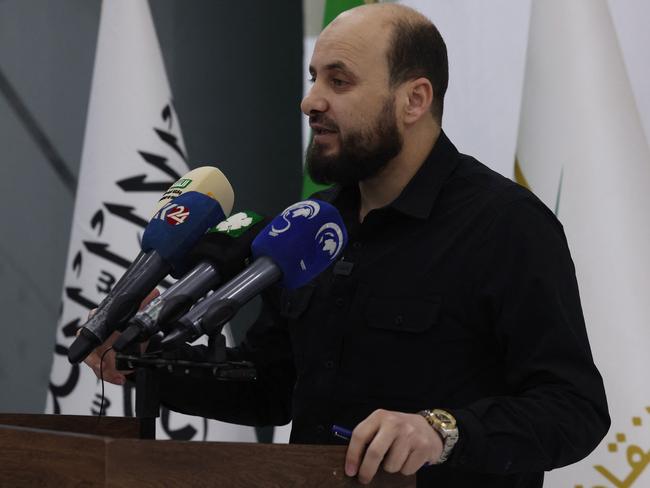
“They have been sending messages of unity, of inclusiveness,” Geir Pedersen said, adding that in Aleppo and Hama, “we have also seen … reassuring things on the ground”.
But “what we need not to see is of course that the good statements and what we are seeing on the ground at the beginning, that this is not followed up in practice in the days and the weeks ahead of us.” The overthrow of Assad, who maintained a complex web of prisons and detention centres to keep Syrians from straying from the Baath party line, sparked celebrations around the country and in the diaspora around the world.
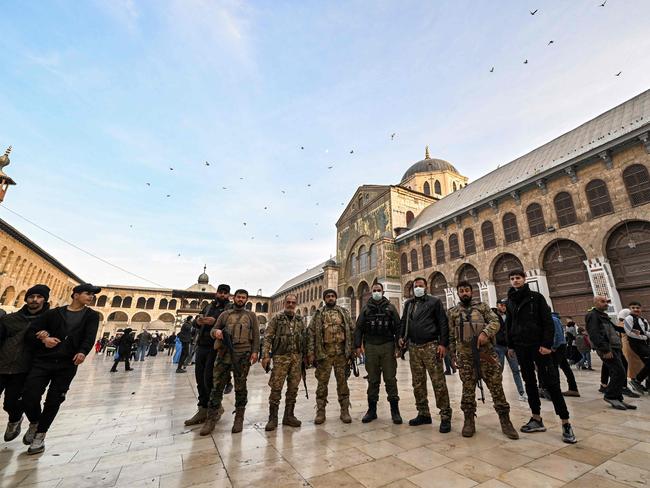
The civil war that led up to it killed 500,000 people and forced half the country to flee their homes, millions of them finding refuge abroad.
The country now faces profound uncertainty after the collapse of a government that had run every aspect of daily life.
Jolani, who now uses his real name Ahmed al-Sharaa, vowed: “We will not hesitate to hold accountable the criminals, murderers, security and army officers involved in torturing the Syrian people.” Jolani held talks on Monday with outgoing prime minister Mohammed al-Jalali “to co-ordinate a transfer of power that guarantees the provision of services” to Syria’s people, according to a statement on Telegram.
REBELS VOW TO HOLD REGIME ACCOUNTABLE
Syria’s Islamist rebel leader on Tuesday vowed to pursue former senior government officials responsible for torture and war crimes, a day after he began talks on the transfer of power following president Bashar al-Assad’s ouster.
Assad fled Syria as the Islamist-led opposition alliance swept into the capital Damascus, bringing a spectacular end on Sunday to five decades of brutal rule by his clan.
He oversaw a crackdown on a democracy movement that erupted in 2011, sparking a war that killed 500,000 people and forced half the country to flee their homes, millions of them finding refuge abroad.
“We will not hesitate to hold accountable the criminals, murderers, security and army officers involved in torturing the Syrian people,” rebel leader Abu Mohammed al-Jolani, now using his real name Ahmed al-Sharaa, said Tuesday in a statement on Telegram.
“We will offer rewards to anyone who provides information about senior army and security officers involved in war crimes,” he said, adding the incoming authorities would seek the return of officials who have fled abroad.
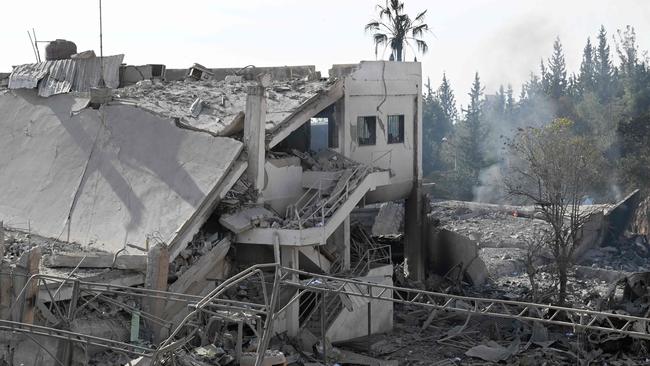
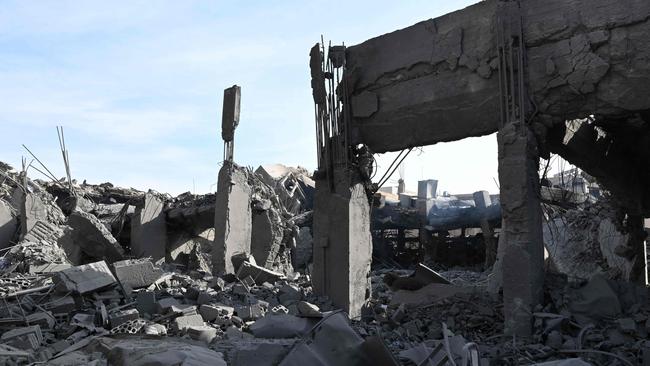
Sharaa held talks on Monday with outgoing prime minister Mohammed al-Jalali “to co-ordinate a transfer of power that guarantees the provision of services” to Syria’s people, according to an earlier statement on Telegram.
While Syria had been at war for over 13 years, the government’s collapse came in a matter of days in a lightning offensive led by Sharaa’s Islamist Hayat Tahrir al-Sham (HTS).
Even as some Syrians rejoiced and others rushed to search for loved ones in Assad’s notorious jails, Israel continued to carry out air strikes aimed at destroying the former government’s military capabilities, the Britain-based Syrian Observatory for Human Rights said.
Early Tuesday, AFP journalists heard more loud explosions in Damascus.
The Syrian Observatory said Tuesday that Israel had “destroyed the most important military sites in Syria” with a flurry of air strikes since the fall of Assad.
It said Israel has carried out “about 250 air strikes on Syrian territory” over the last 48 hours.
They targeted weapons depots, boats from the Assad government’s navy, and a research centre that Western countries suspected of having links to chemical weapons production, it said.
Near the port city of Latakia, Israel targeted an air defence facility and damaged Syrian naval ships as well as military warehouses.
In and around the capital Damascus, strikes targeted military installations, research centres, and the electronic warfare administration.
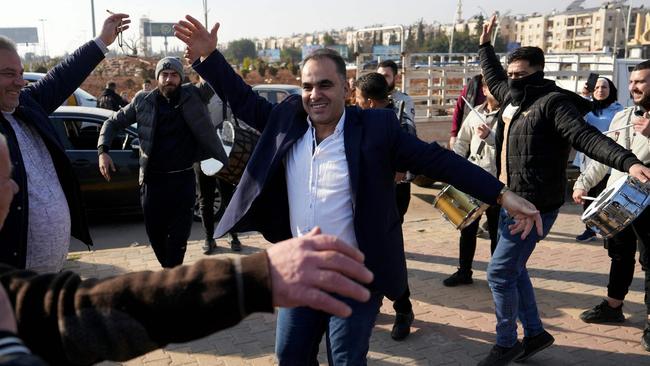
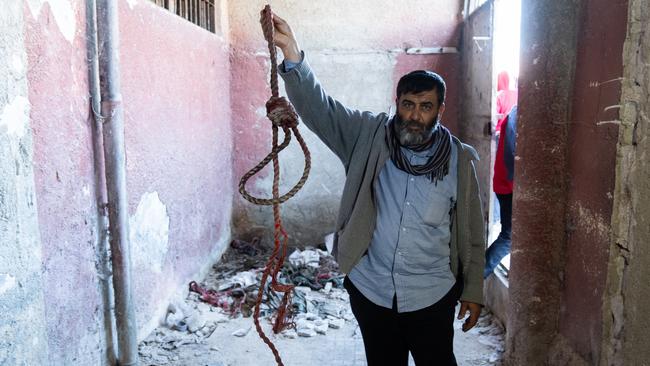
Israel, which borders Syria, also sent troops into a buffer zone east of the Israeli-annexed Golan Heights after Assad’s fall, in what Foreign Minister Gideon Saar described as a “limited and temporary step” for “security reasons”.
Lebanon’s Hezbollah, which had been allied to Assad, condemned the strikes late Monday and lambasted Israel for “occupying more land in the Golan Heights”.
At the core of the system of rule that Assad inherited from his father Hafez was a brutal complex of prisons and detention centres used to eliminate dissent by those suspected of stepping out of the ruling Baath party’s line.
Thousands of Syrians gathered Monday outside a jail synonymous with the worst atrocities of Assad’s rule to search for relatives, many of whom had spent years in the Saydnaya facility outside Damascus, AFP correspondents said.
Rescuers from the Syrian White Helmets group had earlier said they were looking for potential secret doors or basements in Saydnaya.
“I ran like crazy” to get to the prison, said Aida Taha, 65, searching for her brother who was arrested in 2012.
“But I found out that some of the prisoners were still in the basements. There are three or four floors underground.”
Crowds of freed prisoners wandered the streets of Damascus distinguishable by the marks of their ordeal: maimed by torture, weakened by illness and emaciated by hunger.
– with Agence France-Presse (AFP)




